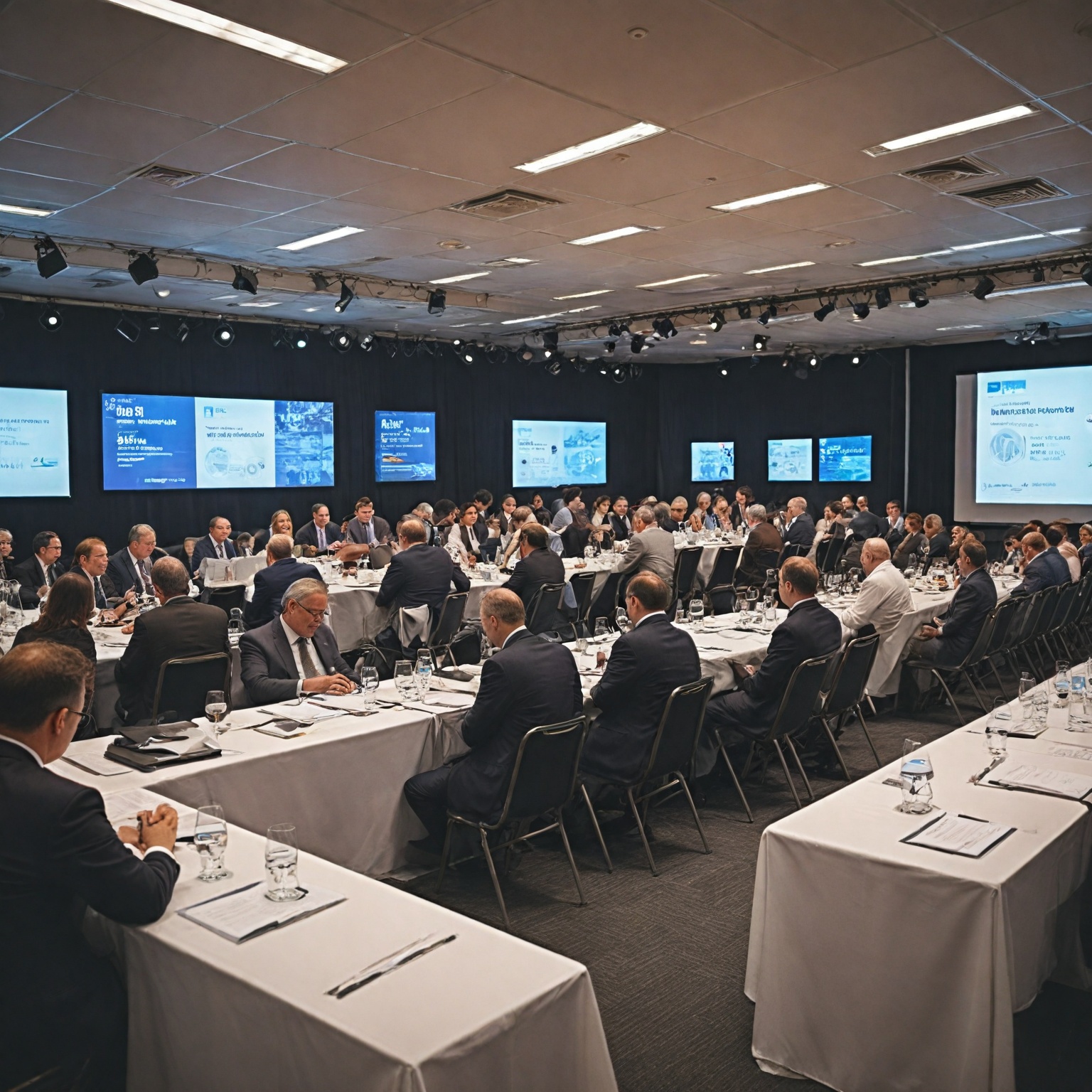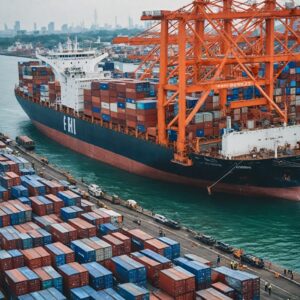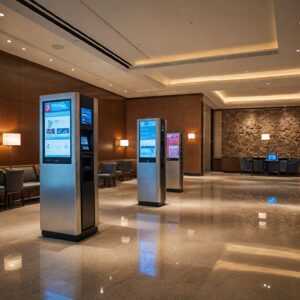Summary
Breaking News: Indian Shipbuilders Seal Deals for Vessels and Green Technology Partnerships in Oslo highlights a landmark series of agreements and collaborations between Indian shipbuilding firms and international maritime companies, formalized during the Nor-Shipping 2025 conference held in Oslo, Norway. The event underscored India’s rising prominence in the global shipbuilding industry, with Indian shipyards currently holding 11% of the Norwegian Shipowners’ Association’s order book, and showcased strategic partnerships aimed at advancing sustainable maritime technologies and expanding India’s footprint in international markets.
Key deals included a Memorandum of Intent (MOI) between Germany’s Carsten Rehder Schiffsmakler und Rehder GmbH & Co. KG and Garden Reach Shipbuilders & Engineers Ltd (GRSE) for the construction of four versatile multi-purpose vessels featuring hybrid propulsion and advanced cybersecurity standards. Additionally, Indian companies like Larsen & Toubro (L&T) and Cochin Shipyard Ltd engaged in collaborations with Norwegian firms such as DNV and Kongsberg Maritime, notably involving the design and construction of India’s first polar research vessel. These partnerships reflect a concerted emphasis on integrating green technologies including hydrogen fuel systems, rotor sails, and energy-efficient ship designs aligned with global decarbonization goals targeting 2050.
The Oslo event also facilitated high-level diplomatic engagements, reinforcing Indo-Norwegian cooperation in areas such as ship recycling, seafarer training, offshore energy, and sustainable fisheries. Led by India’s Union Minister of Ports, Shipping & Waterways, Sarbananda Sonowal, the delegation sought to leverage Norway’s advanced maritime expertise alongside India’s expanding shipyard capacity to co-develop eco-friendly vessels, supporting both nations’ ambitions for blue economy growth and green maritime innovation. Furthermore, Indian interest in joint ventures with Japanese shipbuilders was highlighted, signaling broader international outreach in shipbuilding and repair sectors.
These developments have been widely welcomed by industry experts and government officials, who view the agreements as a significant step toward positioning India as a global maritime powerhouse committed to sustainable innovation. The collaborations exemplify a multi-faceted strategy to modernize India’s shipbuilding industry through cutting-edge technology, environmental stewardship, and enhanced international partnerships, thereby contributing to global efforts to achieve carbon neutrality in shipping and promoting secure, resilient maritime trade routes.
Background
India’s shipbuilding industry has been gaining significant traction on the global stage, marked by strategic partnerships and a growing share in international order books. Indian shipyards currently hold 11% of the order book from the Norwegian Shipowners’ Association (NSA), reflecting the country’s increasing influence in the maritime sector. The industry is actively engaging with key global players and markets, including efforts to collaborate with South Korean shipbuilding firms to enhance capabilities and develop new yards within India. Major international shipping companies such as CMA CGM, Maersk, and MSC Mediterranean Shipping Company have been targeted with proposals for ship repair and shipbuilding services at Indian shipyards.
Prominent Indian shipbuilders and shipyards, including Garden Reach Shipbuilders & Engineers (GRSE), Cochin Shipyard Ltd (CSL), L&T Shipbuilding, and Goa Shipyard Limited, are part of a broader delegation pursuing global expansion opportunities. GRSE, in particular, aligns its growth with the Government of India’s ‘Make in India – Make for World’ initiative and has a strong track record in constructing advanced naval platforms for the Indian Navy and Coast Guard, while also exploring commercial and green platform markets internationally.
The collaboration between Indian shipbuilders and international partners also focuses on innovative and sustainable maritime technologies. This includes a shared interest in green hydrogen as a maritime fuel, particularly for short-sea shipping, demonstrated through partnerships with Norwegian companies such as Torghatten Nord, Myklebust Verft, and The Norwegian Ship Design Company. These efforts emphasize safety, reliability, and sustainability to support the transition toward greener shipping solutions.
Globally, the maritime sector is undergoing a green transformation aimed at reducing carbon emissions and enhancing environmental stewardship. Technological advancements that improve ship resistance and energy efficiency play a critical role in this transition, aligning with international goals such as the 2050 plan for sustainable shipping. India’s increasing presence in this arena highlights its commitment to integrating green technology into shipbuilding and maritime operations.
Oslo Event Overview
The Oslo event, notably marked by the Nor-Shipping conference, served as a pivotal platform for Indian maritime firms to secure significant shipbuilding deals and advance green technology collaborations. Held in Oslo and Lillestrøm, Norway, the conference brought together global leaders in the maritime industry to showcase innovative technologies and foster strategic partnerships.
During the event, Indian companies made remarkable strides, including signing a Memorandum of Intent (MOI) between Germany’s Carsten Rehder Schiffsmakler und Rehder GmbH & Co. KG and India’s Garden Reach Shipbuilders & Engineers Ltd (GRSE) for the construction of four versatile multi-purpose vessels. These vessels are planned to incorporate hybrid propulsion systems and adhere to the latest cybersecurity standards, highlighting a commitment to environmentally sustainable and secure maritime solutions.
The delegation of Indian maritime companies, led by the Union Minister of Ports, Shipping & Waterways, Shri Sarbananda Sonowal, included notable shipbuilders and maritime service providers such as L&T Shipbuilding, Goa Shipyard Limited, Cochin Shipyard Ltd (CSL), and Swan Defence & Heavy Industries, among others. This diverse representation underscored India’s intent to expand its footprint in the global maritime ecosystem through innovation, sustainable practices, and international collaboration.
Furthermore, the event catalyzed high-level discussions aimed at deepening Indo-Norwegian maritime cooperation. Minister Sonowal engaged with Norwegian counterparts to explore opportunities in ship recycling, seafarer training, sustainable fisheries, ocean renewable energy, and offshore hydrocarbons. Both sides emphasized leveraging Norway’s advanced ship design expertise alongside India’s robust shipyard capabilities to co-develop world-class, eco-friendly vessels, thereby driving a transformative shift towards sustainable maritime transport.
The event also highlighted India’s interest in fostering joint ventures with leading Japanese shipbuilding companies, further expanding the scope of international partnerships. Notably, a Memorandum of Understanding (MoU) was signed between GRSE and Norway’s Kongsberg Maritime to collaborate on India’s first-ever polar research vessel, signaling India’s ambitions in specialized maritime research and technology.
Deals and Agreements
Indian shipbuilding companies secured several significant deals and partnerships during the Nor-Shipping 2025 conference held in Oslo, highlighting a strong emphasis on sustainability, green technology, and advanced maritime capabilities. One of the major agreements was a Memorandum of Intent (MOI) signed between the German firm Carsten Rehder Schiffsmakler und Rehder GmbH & Co. KG and India’s Garden Reach Shipbuilders & Engineers Ltd (GRSE) for the construction of four versatile 7,500 DWT multi-purpose vessels featuring hybrid propulsion systems and adherence to the latest cybersecurity standards. These vessels are intended to perform a variety of roles including maritime surveillance, patrol, torpedo launching and recovery, humanitarian assistance, disaster relief, and logistical support for island territories, as well as serving as trial platforms for naval weapons and sensors under development.
Another key agreement involved Larsen & Toubro (L&T) group partnering with Norway’s DNV to collaborate across multiple sectors such as shipbuilding, offshore and maritime activities, port infrastructure, and smart sustainable solutions. This partnership reflects a broader commitment to innovation and environmental stewardship within the Indian maritime industry.
Further strengthening international cooperation, GRSE signed a Memorandum of Understanding (MoU) with Norway’s Kongsberg Maritime to leverage Norwegian design expertise in the development of India’s first-ever polar research vessel. The vessel will be constructed at GRSE’s Kolkata shipyard, combining cutting-edge Norwegian technology with Indian shipbuilding capabilities, marking a significant milestone in India’s polar research infrastructure.
These agreements were formalized in the presence of India’s Union Minister of Ports, Shipping and Waterways, Sarbananda Sonowal, underscoring the government’s active role in fostering global maritime partnerships and advancing India’s ambitions in green shipbuilding and sustainable maritime technologies. The deals demonstrate India’s growing stature in the global maritime industry and its strategic focus on environmentally friendly vessel construction and maritime innovation.
Technological Innovations and Sustainability
The recent agreements signed by Indian shipbuilders in Oslo underscore a commitment to advancing green technologies and sustainable practices within the maritime industry. Central to these efforts is the integration of various technologies aimed at reducing ship resistance and onboard energy consumption, which directly contributes to lowering fuel usage and minimizing the transport of harmful emissions worldwide. This aligns with global objectives to enhance fleet energy efficiency and meet the ambitious targets of the 2050 decarbonization plan.
A key area of innovation involves the development and deployment of eco-friendly vessels equipped with cutting-edge green solutions. Examples include the utilization of high manganese steel tanks and rotor sails, which improve vessel performance and reduce carbon footprints. Moreover, the industry is pioneering new ship types capable of transporting liquefied gases such as CO2 (LCO2), hydrogen (LH2), and ammonia (LNH3), supporting the transition to zero-emission shipping. These initiatives also extend to the design and manufacture of next-generation offshore wind turbine installation vessels, bolstering renewable energy infrastructure.
Hydrogen-powered ferries exemplify the tangible progress in sustainable maritime technology. These vessels utilize onboard hydrogen storage units feeding fuel cells that generate electricity to propel the ship and power auxiliary systems, resulting in significant annual CO2 emission reductions—estimated at around 26,500 tons. Collaborative projects involving classification societies, shipyards, designers, and hydrogen suppliers highlight a strong commitment to safety, reliability, and sustainability. Norway’s proactive stance in developing hydrogen infrastructure further facilitates the deployment of such innovative vessels, with governmental bodies endorsing and flagging these pioneering ships.
Hybrid propulsion systems have also shown promising results in fuel efficiency. Reports indicate that such systems can reduce fuel consumption by 10-30% compared to conventional propulsion methods, delivering considerable operating cost savings and environmental benefits. The hybrid approach often combines traditional engines with supplementary power sources to optimize fuel usage.
Additionally, wind-assisted technologies are gaining traction as complementary solutions. By retrofitting conventional ships with rotor sails or other wind harnessing mechanisms, vessels can decrease engine power demands, thereby reducing fuel consumption without extensive modifications to ship design or port infrastructure. These technologies offer a low environmental impact pathway toward greener shipping operations.
Collectively, these technological advancements illustrate a broad, multi-faceted strategy to achieve carbon neutrality and sustainable growth in the maritime sector. The collaboration between Indian shipbuilders and international partners in Oslo highlights the global nature of these efforts, leveraging innovation to meet evolving regulatory standards and environmental goals.
Economic and Strategic Impact
The recent agreements between Indian shipbuilders and Norwegian maritime companies signify a pivotal step toward enhancing bilateral cooperation in the maritime sector, with substantial economic and strategic implications for both nations. This partnership aligns with India’s broader vision to emerge as a global powerhouse in shipbuilding, as articulated under Prime Minister Narendra Modi’s initiatives such as the ‘Maritime India Vision 2030’ and ‘Maritime Amrit Kaal Vision 2047’. By leveraging Norway’s advanced ship design expertise alongside India’s robust shipyard capacities, the collaboration aims to produce world-class, eco-friendly vessels that cater to the rising global demand for sustainable maritime transport.
Economically, this cooperation is expected to strengthen India’s shipbuilding industry by attracting international investments and technological know-how, thereby increasing its share in the global order book. The partnership also opens avenues for joint ventures in ship recycling, seafarers’ training, and offshore hydrocarbon exploration, which could foster job creation and skill development within India’s maritime workforce.
Strategically, the agreements underscore a shared commitment to sustainable ocean management and decarbonization of maritime transport. The focus on green shipping technologies, such as the electrification of ferry systems and the production of electric hybrid ferries exemplified by Cochin Shipyard’s work on the Kochi Water Metro, highlights a concerted effort to reduce carbon emissions and promote clean energy integration in port infrastructure and logistics. These initiatives support both nations’ ambitions to develop resilient and inclusive blue economies rooted in environmental stewardship.
Furthermore, India’s intention to transform its ports into global investment hubs through public-private partnerships and green energy adoption is expected to enhance maritime trade connectivity and strengthen geopolitical ties with Norway and other partner countries. The collaboration also offers Norway an expanded market for its maritime technologies and innovations, reinforcing its leadership in high-quality vessel construction and sustainable shipping solutions.
Diplomatic and Strategic Relations
India and Norway have reinforced their long-standing diplomatic and strategic relations through multiple high-level engagements focused on maritime cooperation and sustainable development. During the Nor-Shipping 2025 event in Oslo, Union Minister of Ports, Shipping and Waterways Sarbananda Sonowal held bilateral meetings with Norway’s Transport Minister Jon-Ivar Nygård and Minister of Fisheries and Ocean Policy Marianne Sivertsen to explore avenues for deeper collaboration in the maritime sector. This ongoing partnership reflects shared values and a mutual commitment to advancing green technologies and sustainable ocean management.
A key area of cooperation includes the electrification of ferry systems, where India seeks to learn from Norway’s successful implementation to accelerate its own green maritime initiatives under Prime Minister Narendra Modi’s “Maritime India Vision 2030”. Both countries agreed to exchange experiences and deepen collaboration in this domain, furthering their joint efforts towards reducing emissions and promoting clean fuels in shipping. The partnership also emphasizes the adoption of alternative fuels like green hydrogen and the integration of digital platforms such as ONOP and MAITRI to modernize port infrastructure and logistics.
Strategic economic ties were bolstered by the recent EFTA-India Trade and Economic Partnership Agreement, which underscores the strong economic cooperation between the two nations. Indian conglomerate Larsen & Toubro (L&T) and Norwegian certification company DNV reached significant agreements to collaborate on shipbuilding, offshore activities, port infrastructure, and smart sustainable solutions. Moreover, Norway’s maritime technology expertise is being leveraged in the design and construction of India’s first polar research vessel, with companies like Kongsberg providing critical support.
The Indian delegation’s participation in a ministerial roundtable on the future of ocean shipping alongside representatives from global maritime powers highlighted the shared vision for stable regulations and inclusive, sustainable maritime trade. Norwegian authorities expressed strong support for the responsible adoption of new emission-reducing technologies by shipping companies, emphasizing the importance of competent partnerships to achieve these goals. Furthermore, India’s Sagarmala programme and its $2.9 billion Maritime Development Fund offer additional opportunities for Norwegian investment and collaboration in shipbuilding, ports, and logistics projects.
Through these initiatives, India and Norway are forging a robust and growing partnership in the Blue Economy, fostering innovation, sustainability, and economic growth in the maritime domain. The ongoing diplomatic and strategic engagements signal a promising trajectory for bilateral relations centered on advancing green maritime technologies and sustainable ocean governance.
Operational and Trade Implications
The recent deals and partnerships forged by Indian shipbuilders at the Nor-Shipping conference in Oslo signal significant operational and trade implications for the maritime sector. These collaborations emphasize the growing commitment to green technology and sustainable shipping practices, which are expected to reshape industry operations and global trade patterns.
One of the key operational shifts involves the extension of digital transformation into shipyards, creating “smart yards” that improve efficiency and enable the production of eco-friendly vessels. Indian shipbuilders aim to pioneer future markets by developing vessels equipped with green ship solutions such as high manganese steel tanks and rotor sails. They are also focusing on new ship types designed to carry liquefied CO2, hydrogen, and ammonia, alongside zero-emission vessels and next-generation offshore wind turbine installation ships. These initiatives align with global efforts to achieve carbon neutrality and support the energy transition.
The trade landscape is also influenced by external factors such as China’s lockdowns, which disrupted the supply chain for intermediate products essential to marine hybrid propulsion systems. This disruption has had a downstream effect on the demand for electric propulsion technologies, highlighting the interconnected nature of global maritime supply chains and the importance of resilient operational frameworks.
Collaborative efforts between India and Norway underscore the strategic direction towards green shipping technologies. Initiatives such as the Green Tug Transition, e-Methanol bunkering, and hydrogen-powered vessels exemplify this partnership. The joint manufacturing of electric ferries and vessels is positioned to
Reactions and Commentary
The announcement of partnerships between Indian shipbuilders and international collaborators, particularly with Japanese firms and Norwegian technology experts, has been met with widespread optimism within the maritime industry. Industry leaders emphasize the strategic importance of these collaborations as India embarks on pioneering projects such as the design and construction of its first-ever polar research vessel, with Kongsberg providing critical design expertise. The involvement of Japan’s renowned shipbuilding companies is seen as a significant opportunity to enhance India’s capabilities and foster innovation in ship repair and construction.
Indian government officials underscore the broader vision behind these partnerships, aligning them with Prime Minister Narendra Modi’s strategy to position India as a global shipbuilding powerhouse. The joint efforts are expected not only to strengthen bilateral ties but also to contribute to the development of a sustainable and secure Indo-Pacific maritime ecosystem. The presence of a business delegation comprising key maritime companies, including GRSE, L&T Shipbuilding, and Cochin Shipyard Ltd, further signals the comprehensive industry support for this initiative.
Experts highlight the critical role of advancing green technologies and energy-efficient designs in the shipping sector, noting that innovations from these collaborations will help reduce fuel consumption and minimize environmental impact. This aligns with global goals to achieve a smooth transition towards green shipping by 2050. Additionally, recent technological advancements by Indian shipyards, such as the launch of autonomous underwater vehicles and unmanned surface vessels, have been lauded as milestones that reinforce the country’s commitment to innovation and maritime excellence.
Industry forums like Nor-Shipping have been acknowledged for their role in facilitating such international cooperation by enabling stakeholders to connect, exchange insights, and form valuable partnerships. The emphasis on human connections as the backbone of the maritime industry is frequently cited as essential for sustaining long-term success. Overall, the reactions reflect a collective enthusiasm about the potential for these partnerships to propel India’s shipbuilding sector into a new era of technological sophistication and environmental responsibility.
























